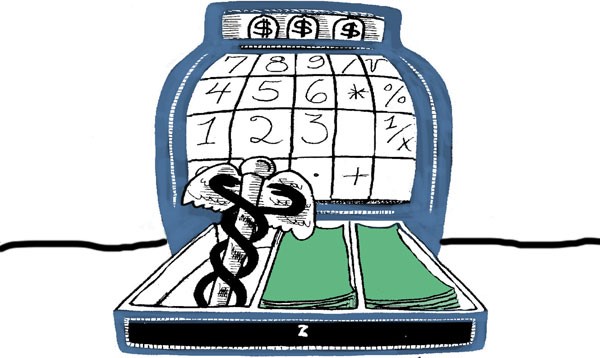If nothing else, one has to admire the creativity of this idea:
"Life Settlement Players Root for Health Account Bill"
So let's unpack this, shall we?
First: what, pray tell, are "Life Settlement Players?"
Long time readers know that this refers to the viatical market:
"Since life insurance is property, it can generally be sold. In this case, the client saved the annual premium and picked up an easy $5,000."
That is, one can sell one's life insurance policy to another person for a quick buck or three (depending on one's health and life expectancy). This is generally perfectly legal (there are, of course, other considerations, biut that's another post). And, thanks to a little known piece of HIPAA, there are some great tax advantages, as well:
"A viatical settlement made to an individual considered terminally ill (under HIPAA, one who has a life expectancy of 24 months or less) is entirely tax free."
We'll circle back to that "terminally ill" qualifier in a moment.
Okay, Henry, but what's that got to do with the price of tea in China, or some pending health insurance-related legislation?
Well, let's see what H.R. 5958's all about, shall we?
A clue may be found in the name: "Senior Health Planning Account Act."
Basically, it "could help people use the proceeds from the sale of life insurance policies to pay health care expenses."
So what's the big deal?
Well, let's circle back to HIPAA, viaticals, and taxes:
Remember, one can only receive viatication funds tax-free if one is either terminally ill or using the the proceeds to fund one's (uninsured) long term are needs. But if you're not in one of those categories, there are some taxes to be paid. What this bill does is to obliterate that distinction for tax purposes:
"Under the provisions of H.R. 5958, a consumer who sold an in-force policy and put the money in a senior health planning account could spend the money on “qualified health care expenses” without paying federal income taxes on the proceeds from the life insurance policy sale."
Sweet!
Of course, we then have to define "qualified health care expenses," but that should be relatively easy under existing regs (specifically, Section 213d, also used for HSAs/HRAs/FSAs).
So one can see why this would be an attractive marketing tool for folks in the viatical settlement industry: it basically opens up a (potentially vast) new market.
Of course, still has to pass...
[Hat Tip: FoIB Allison Bell]
"Life Settlement Players Root for Health Account Bill"
So let's unpack this, shall we?
First: what, pray tell, are "Life Settlement Players?"
Long time readers know that this refers to the viatical market:
"Since life insurance is property, it can generally be sold. In this case, the client saved the annual premium and picked up an easy $5,000."
That is, one can sell one's life insurance policy to another person for a quick buck or three (depending on one's health and life expectancy). This is generally perfectly legal (there are, of course, other considerations, biut that's another post). And, thanks to a little known piece of HIPAA, there are some great tax advantages, as well:
"A viatical settlement made to an individual considered terminally ill (under HIPAA, one who has a life expectancy of 24 months or less) is entirely tax free."
We'll circle back to that "terminally ill" qualifier in a moment.
Okay, Henry, but what's that got to do with the price of tea in China, or some pending health insurance-related legislation?
Well, let's see what H.R. 5958's all about, shall we?
A clue may be found in the name: "Senior Health Planning Account Act."
Basically, it "could help people use the proceeds from the sale of life insurance policies to pay health care expenses."
So what's the big deal?
Well, let's circle back to HIPAA, viaticals, and taxes:
Remember, one can only receive viatication funds tax-free if one is either terminally ill or using the the proceeds to fund one's (uninsured) long term are needs. But if you're not in one of those categories, there are some taxes to be paid. What this bill does is to obliterate that distinction for tax purposes:
"Under the provisions of H.R. 5958, a consumer who sold an in-force policy and put the money in a senior health planning account could spend the money on “qualified health care expenses” without paying federal income taxes on the proceeds from the life insurance policy sale."
Sweet!
Of course, we then have to define "qualified health care expenses," but that should be relatively easy under existing regs (specifically, Section 213d, also used for HSAs/HRAs/FSAs).
So one can see why this would be an attractive marketing tool for folks in the viatical settlement industry: it basically opens up a (potentially vast) new market.
Of course, still has to pass...
[Hat Tip: FoIB Allison Bell]
from InsureBlog https://ift.tt/2TtEHdn
via

No comments:
Post a Comment